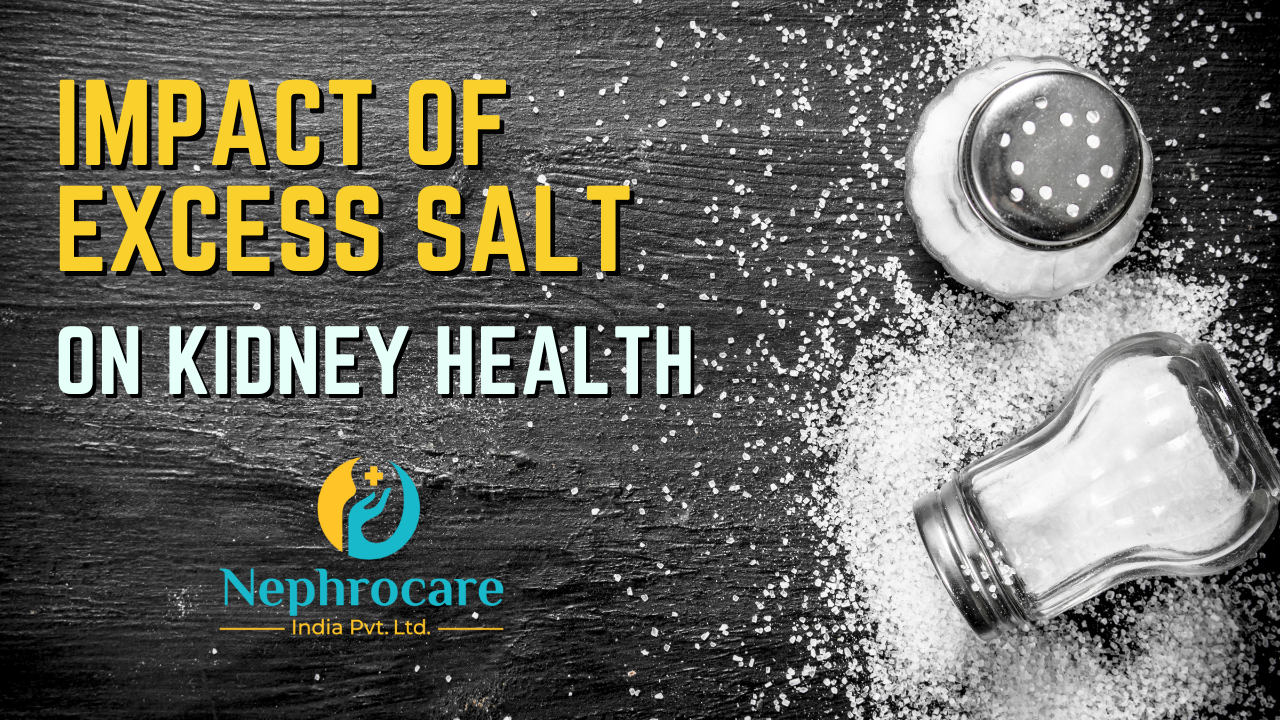
- 1348
- 5
Impact of Excess Salt on Kidney Health
In the diverse tapestry of India’s culinary landscape, one often encounters the enticing allure of salty flavors. While salt is an essential component of our diet, excessive consumption can have detrimental effects on kidney health. In this blog, we explore the prevalence of excess salt intake in India, the reasons behind our penchant for salty foods, and crucial insights on how to control salt consumption, especially for those grappling with Chronic Kidney Disease (CKD).
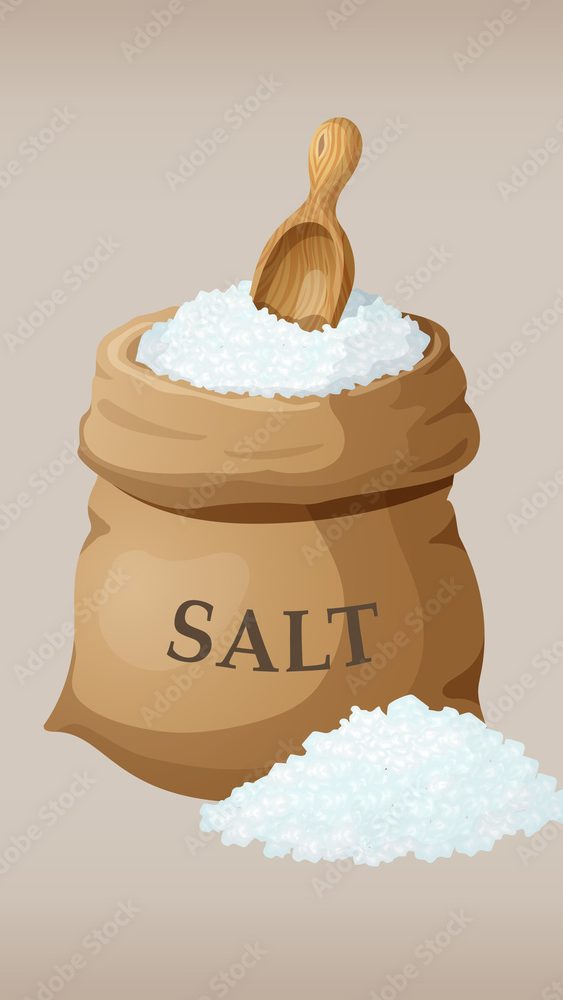
The Excess Salt Story in India:
India, a nation known for its rich and varied cuisine, also faces a concerning prevalence of excess salt consumption. The average Indian diet tends to be high in sodium, with salt often playing a pivotal role in enhancing flavors. This widespread affinity for salty foods has contributed to an increase in various health concerns, particularly impacting kidney health.
Why the Salty Craving?
The allure of salty foods is deeply ingrained in our taste preferences. Salt enhances flavors and can even mask certain undesirable tastes in dishes. Additionally, cultural and societal factors play a role; many traditional Indian recipes incorporate generous amounts of salt, passing down a preference for salty flavors through generations.
The kidneys play a crucial role in maintaining the body’s fluid and electrolyte balance, and excessive salt consumption can disrupt this delicate balance. Here are some ways in which excess salt can affect kidney health:
- High Blood Pressure (Hypertension): One of the primary concerns associated with excessive salt intake is the development of high blood pressure. High blood pressure can damage the blood vessels in the kidneys over time, reducing their ability to filter blood effectively. This condition, known as hypertensive nephropathy, can lead to chronic kidney disease (CKD) or exacerbate existing kidney problems.
- Fluid Retention: High salt levels can lead to fluid retention in the body. When the kidneys are unable to effectively eliminate excess sodium, the body retains water to dilute the sodium concentration. This can result in edema (swelling), putting additional strain on the kidneys.
- Reduced Kidney Function: Excessive salt intake may contribute to a decline in kidney function. The kidneys filter waste and excess fluid from the blood to form urine. When the kidneys are overworked due to high salt levels and associated conditions like hypertension, their ability to function optimally can be compromised.
- Formation of Kidney Stones: High salt intake can increase the risk of developing kidney stones. The excess sodium in the urine can combine with other substances to form crystals, which may eventually develop into kidney stones. These stones can obstruct the urinary tract, causing pain and potentially leading to kidney damage.
- Aggravation of Pre-existing Kidney Conditions: Individuals with pre-existing kidney conditions, such as chronic kidney disease, are particularly vulnerable to the negative effects of excess salt. High salt levels can accelerate the progression of kidney disease and increase the risk of complications.
Controlling Excess Salt Consumption:
Acknowledging the impact of excess salt on kidney health, it becomes imperative to take conscious steps to control our salt intake. Simple measures, such as reading food labels, opting for fresh ingredients, and preparing meals at home, can significantly contribute to reducing sodium consumption. Adopting herbs and spices as flavor enhancers instead of salt is a flavorful and heart-healthy alternative.
To promote kidney health and reduce the impact of excess salt:
- Limit Sodium Intake: The recommended daily intake of sodium is typically around 2,300 mg or less for adults, but many health organizations suggest an even lower target of 1,500 mg per day, especially for those with hypertension or kidney issues.
- Read Food Labels: Be mindful of the sodium content in packaged and processed foods. Many processed foods and restaurant meals can be high in salt.
- Increase Water Intake: Staying well-hydrated can help flush excess sodium from the body. Adequate water intake supports kidney function and helps prevent the formation of kidney stones.
To know more about salt intake, feel free to contact with our Diet team👇👇
High-Sodium Culprits:
Unbeknownst to many, several everyday foods pack a surprising punch when it comes to salt content. Processed and packaged foods, such as canned soups, snacks, and ready-to-eat meals, often harbor excessive amounts of sodium. Even seemingly innocent condiments like ketchup and soy sauce can contribute to elevated salt intake. Being mindful of these hidden sources is essential for maintaining kidney health.
The Silent Threat to CKD Patients:
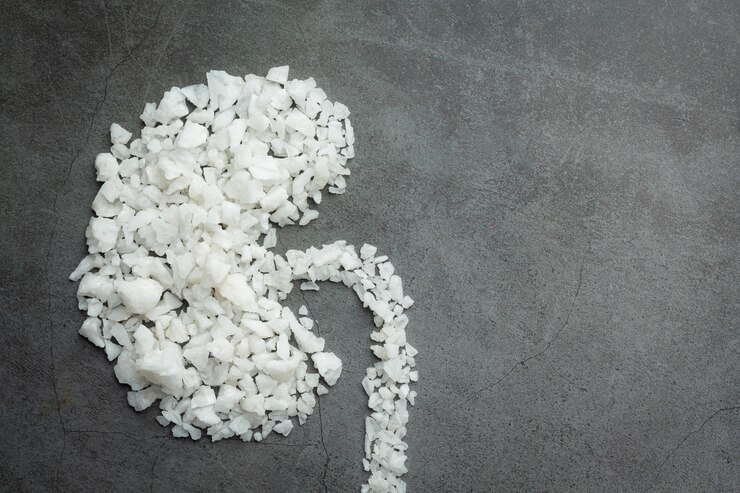
For individuals already grappling with Chronic Kidney Disease (CKD), the stakes are even higher. Excess salt can exacerbate hypertension, a common complication in CKD patients, leading to further kidney damage. Strict adherence to a low-sodium diet is crucial for managing CKD and slowing the progression of the disease.
Recommended Excess Salt Intake:
The World Health Organization recommends limiting salt intake to less than 5 grams (about one teaspoon) per day for adults. However, the average daily salt consumption in India often exceeds this recommendation, contributing to the rising prevalence of kidney-related issues.
Conclusion:
As we savor the myriad flavors of Indian cuisine, it is vital to strike a balance between taste and health. Excess salt, though a culinary delight, poses a significant threat to kidney health. By understanding the prevalence of salt consumption in India, unraveling the reasons behind our salty cravings, and adopting mindful practices to control salt intake, we can pave the way for a healthier future. For those already facing the challenges of CKD, the journey towards better kidney health begins with a conscious effort to reduce salt intake, ensuring that each flavorful bite brings us closer to well-being.
Comment
2024-03-29 07:06:45
Rina Mukherjee
Very helpful guidelines for normal and ckd patients. Thank you so much Doctor, it can help me for longer living. As our father we are all grateful to you.
Glad to hear from you, Keep an eye out for further updates on health-related blogs.
2024-03-28 17:22:28
Raju Bhowmik
Nyc article
Glad to hear from you, Keep an eye out for further updates on health-related blogs.
2024-03-28 16:59:07
Arti Kumari
This is really very fruitful information regarding impact of excess salt for every human beings but especially for CKD patients. Thanks a lot Pratim Sir and his entire team members of Nephrocare for sharing this.
Glad to hear from you, Keep an eye out for further updates on health-related blogs.
2024-03-28 13:10:26
Jagdish prasad Agarwal
Nicely elobrate harm of salt for ckd patient
Glad to hear from you, Keep an eye out for further updates on health-related blogs.
Check Your EGFR
***We Promise, no spam!

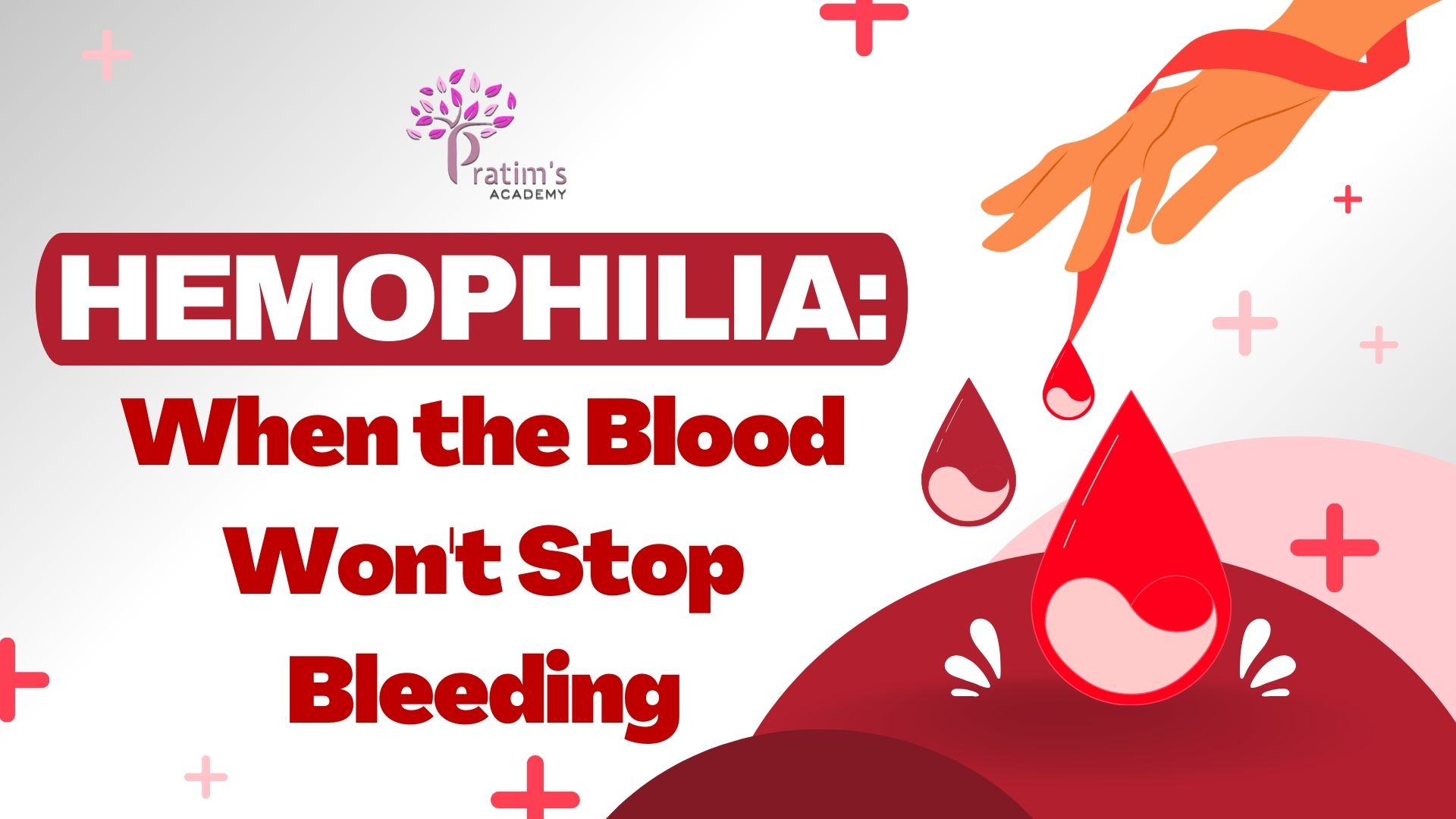

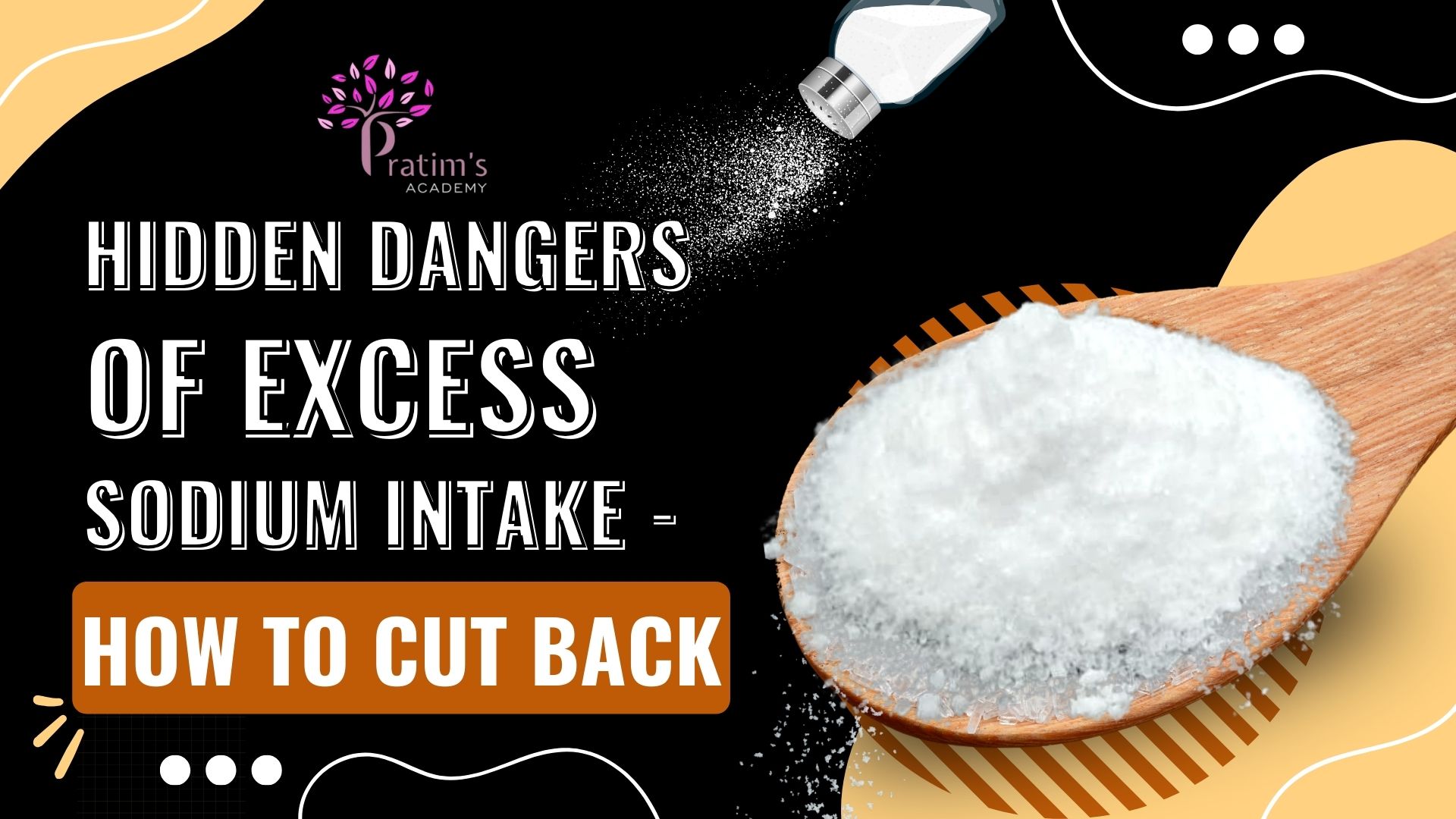
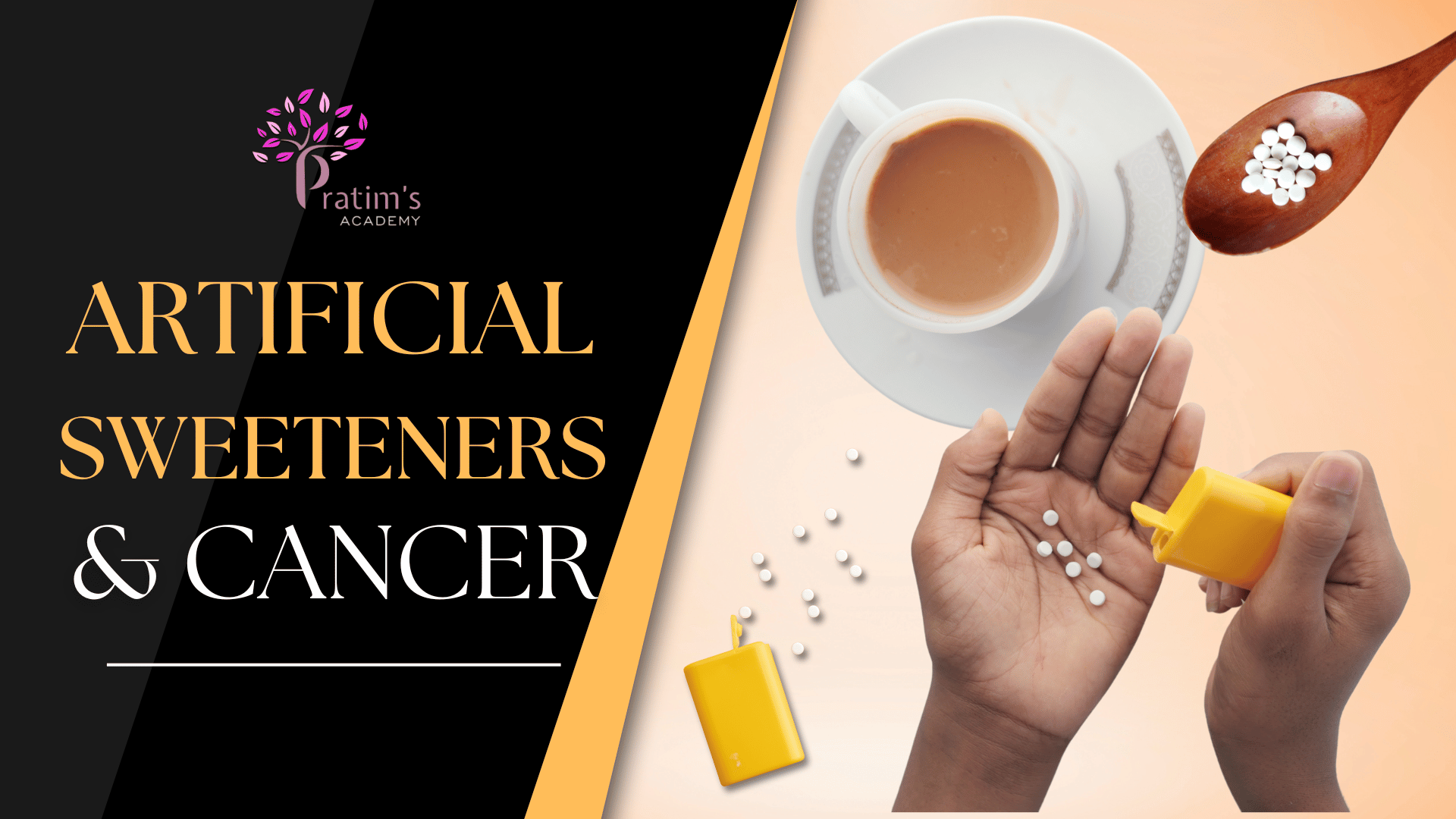


2024-03-29 11:28:59
Ranjan Das
Very very thankful to you about your artical
Glad to hear from you, Keep an eye out for further updates on health-related blogs.